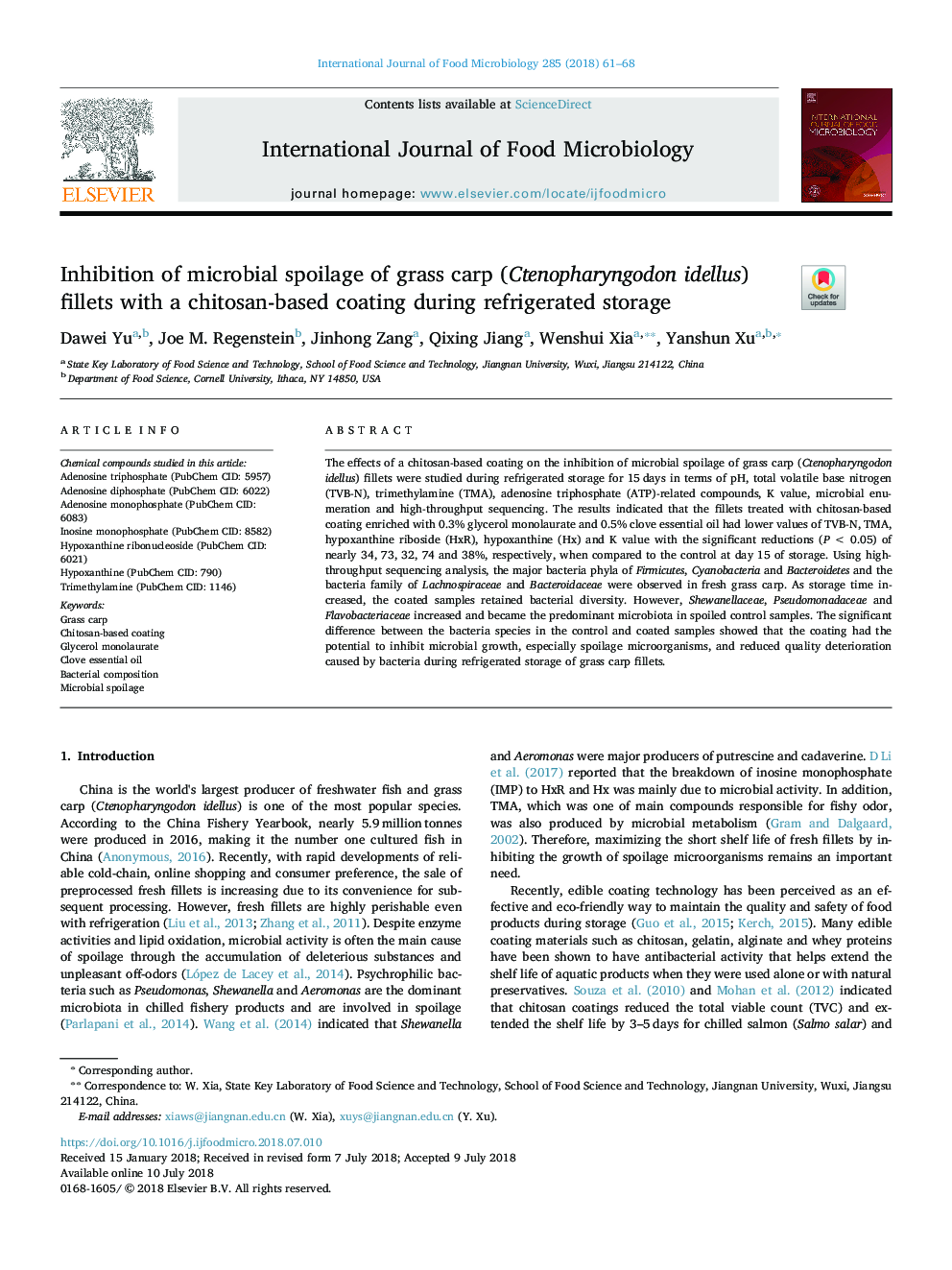| Article ID | Journal | Published Year | Pages | File Type |
|---|---|---|---|---|
| 8844071 | International Journal of Food Microbiology | 2018 | 8 Pages |
Abstract
The effects of a chitosan-based coating on the inhibition of microbial spoilage of grass carp (Ctenopharyngodon idellus) fillets were studied during refrigerated storage for 15â¯days in terms of pH, total volatile base nitrogen (TVB-N), trimethylamine (TMA), adenosine triphosphate (ATP)-related compounds, K value, microbial enumeration and high-throughput sequencing. The results indicated that the fillets treated with chitosan-based coating enriched with 0.3% glycerol monolaurate and 0.5% clove essential oil had lower values of TVB-N, TMA, hypoxanthine riboside (HxR), hypoxanthine (Hx) and K value with the significant reductions (Pâ¯<â¯0.05) of nearly 34, 73, 32, 74 and 38%, respectively, when compared to the control at day 15 of storage. Using high-throughput sequencing analysis, the major bacteria phyla of Firmicutes, Cyanobacteria and Bacteroidetes and the bacteria family of Lachnospiraceae and Bacteroidaceae were observed in fresh grass carp. As storage time increased, the coated samples retained bacterial diversity. However, Shewanellaceae, Pseudomonadaceae and Flavobacteriaceae increased and became the predominant microbiota in spoiled control samples. The significant difference between the bacteria species in the control and coated samples showed that the coating had the potential to inhibit microbial growth, especially spoilage microorganisms, and reduced quality deterioration caused by bacteria during refrigerated storage of grass carp fillets.
Keywords
Related Topics
Life Sciences
Agricultural and Biological Sciences
Food Science
Authors
Dawei Yu, Joe M. Regenstein, Jinhong Zang, Qixing Jiang, Wenshui Xia, Yanshun Xu,
